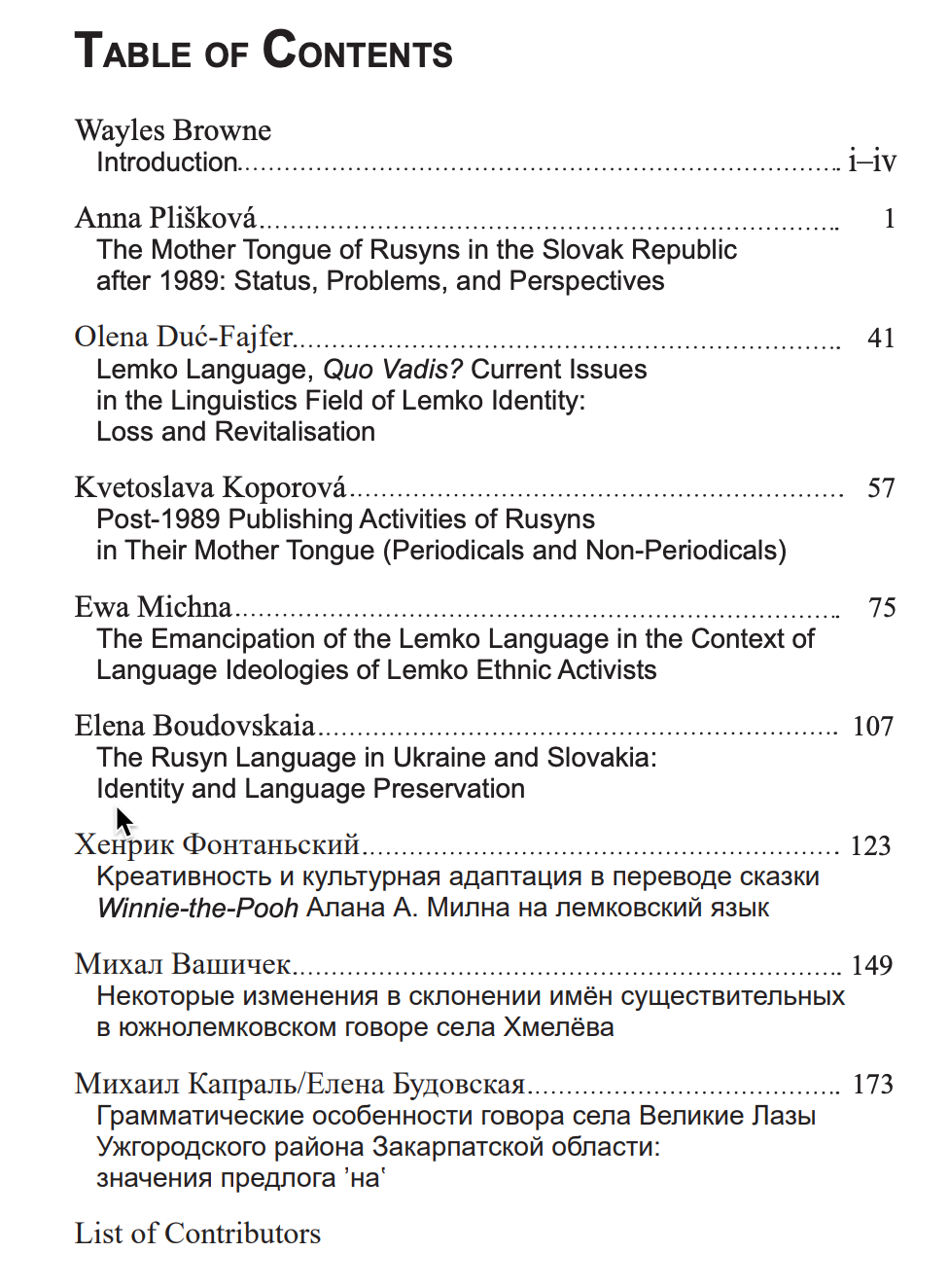New open-access volume on Rusyn studies
« previous post | next post »
Email from Wayles Brown:
I noticed the discussion on Rusyn that appeared on Language Log, and thought some participants might be interested in hearing more about the topic.
Here is a new book on Rusyn studies which just came out in Japan. [The back of the title page, in English, gives the year as 2021, but I gather that the front says "Sapporo, March 2022" in Japanese.] As you'll see, I wrote the introduction, having been interested in Rusyn for some time, and the articles are by people who know more about Rusyn than I do.
As you see from the letter from Mr. Fujimori of the Slavic-Eurasian Research Center at Hokkaido University, everyone is welcome to forward it to others who might be interested.
The referenced letter:
Dear Contributors,
We are pleased to inform you that the volume on the Rusyn language has finally been out. There were many obstacles to overcome for this publication and we are very sorry that it has taken so much time to publish the volume.
Attached please find the whole volume. The electronic version will be posted at the website of the Slavic-Eurasian Research Center sometime
soon.
Since the whole volume will be open-access, you can forward it to your colleagues or post it at Academia or similar websites without asking us
for any permission. If you re-publish your text in other publications, please mention that it was originally published in our volume.
[…]
Cordially yours,
The editorial team
(I put the attached .pdf on the LLOG site for readers' convenience.)
The table of contents:
The start of Wayles Browne's Introduction:
To introduce this collection of articles on Rusyn linguistic and language issues, let us briefly set the stage.
The inverted-C-shaped range of the Carpathian Mountains may seem to be an out-of-the-way part of Europe. Yet these mountains have much to offer, not least for linguists worldwide. The northern curve of the C, primarily in Ukraine, Poland, and Slovakia, is home to (Carpatho-) Rusyn, classified as the westernmost parts of the East Slavic dialect continuum. Speakers of Rusyn have never inhabited a unified country of Rusynia; rather, borders and countries have come and retreated, as seen in oral legends about people who successively held Austro-Hungarian, Czechoslovak, Hungarian, Soviet, and Ukrainian passports, all without ever moving from their home towns of Mukačevo or Užhorod.
Nineteenth-century movements to shape Slavic populations into recognized ethnic groups—into nations in the European sense— succeeded in the cases of Czechs, Slovaks, Bulgarians and others, and newly standardized or re-standardized Slavic languages came into being as a result. Rusyn movements to seek a recognized status were not successful in the nineteenth century nor even in most of the twentieth, both because of external conditions (claims by more powerful countries) and because of their own differences of opinion about whether to form a group of their own, or to join their Ukrainian neighbors (and adopt the newly-forming Ukrainian standard language), or even to claim Russian identity and use the more distant but better standardized Russian language.
After World War II the new Communist Party authorities all made the choice for them: Rusyns in newly Soviet western Ukraine, in Poland, and in Czechoslovakia were assigned Ukrainian identity. But the consequences differed. In Ukraine this meant mainstreaming: being Ukrainian and learning Ukrainian (and Russian) like everyone else. In Slovakia it meant financial support from the Czechoslovak government for minority schools and institutions—but only for Ukrainian-speaking ones. In southeastern Poland the East Slavs, mostly known as Lemkos rather than the more general term Rusyns, were uprooted: partly deported to Ukraine and partly scattered among Poles repopulating the new western territories taken from Germany: a diaspora within their own country. Some of the latter did return home but only several decades later.

Jerry Packard said,
April 3, 2022 @ 5:39 pm
Hello, Wayles!! So good to hear from you!